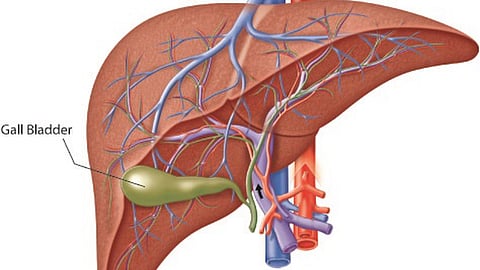

Bile duct and gallbladder cancers are uncommon, with an estimated 12,130 new cases diagnosed this year according to the American Cancer Society. These cancers develop in organs deep inside the body, making tumors difficult to detect. Often, by the time patients experience visible symptoms, the diseases are usually in the later stages. Despite their rarity, it’s important to know the signs and symptoms of bile duct and gallbladder cancers.
While gallbladder cancer and bile duct cancer are separate diseases, they are both part of the biliary drainage system and tend to be cancers that begin in glandular cells in tissue that lines the biliary tract.
The gallbladder is a small organ that is connected to the liver by the bile ducts. The function of this organ is to store bile, a substance produced by the liver to aid in the digestion of dietary fats. When cancer develops in the gallbladder, it usually begins within the innermost layers and then gradually spreads to the surrounding tissues. Bile ducts are a series of thin tubes (ducts) that transfer bile fluid from the liver to the small intestine. Bile duct cancer, also known as cholangiocarcinoma, is caused by the abnormal growth of cells in the bile duct that can occur in any portion of the biliary ductal system.
Detecting these malignancies early can improve outcomes.
While gallbladder cancer usually does not cause symptoms until later in the course of the disease, sometimes initial signs do appear. Some of these include
lumps in the belly
nausea and/or vomiting
abdominal pains
weight loss
jaundice late in the disease process
People who have chronic inflammation of the bile ducts have an increased risk of developing bile duct cancer, along with people with inflammatory bowel disease and people of older age. Some symptoms of bile duct cancer include
itching
dark urine
abdominal pain
fever
nausea
vomiting
Currently, there are certain pathologies of the gallbladder and biliary system which can be precursors to malignancy such as gallbladder polyps, choledochal cysts, and biliary cystadenoma. In these situations, surgical resection is recommended generally as a preventative measure.(AS/Newswise)
